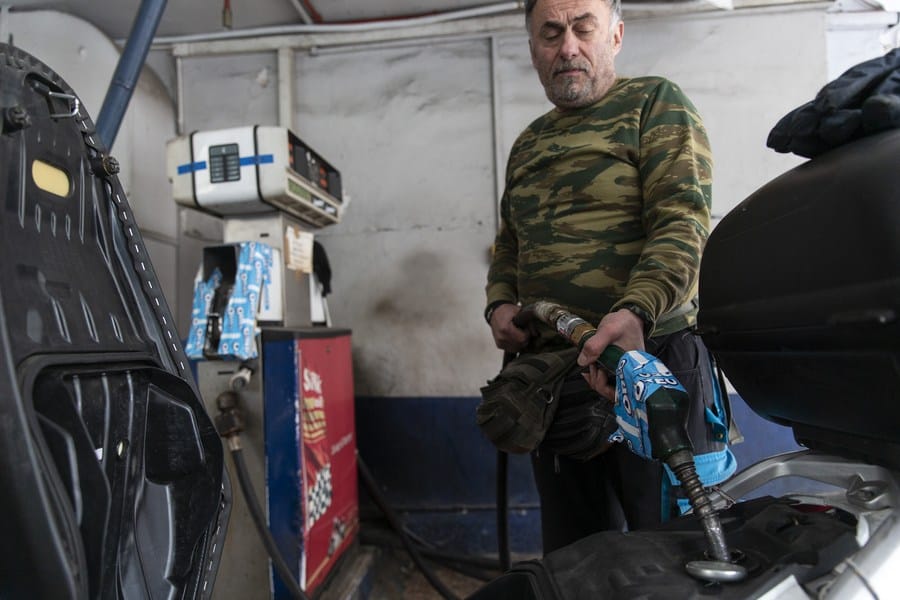Greek gas station owners are calling on the government to ease fuel taxes as they see consumers cutting back on fuel and seeking alternative ways to commute.
“The situation in our country in terms of fuel prices is very difficult. Things are difficult for the sector, gas station owners and consumers. Fuel is now a sort of luxury product …” Maria Zagka, president of Attica’s Gas Station Owners’ Association, told new agency Xinhua.
In Greece, motorists queuing to fill up their cars this week have to dig deeper into their pockets, as fuel prices have dramatically increased amid the Russia-Ukraine conflict.
The average price of unleaded gasoline nationwide now exceeds 2 euros (2.19 U.S. dollars) per liter and diesel follows closely, while on Jan. 1, 2022, the prices were 1.74 and 1.68 euros per liter respectively, according to data from the Development and Investments Ministry.
Gas station owners are calling for an immediate easing of taxation on fuel, as they see consumers cutting back on fuel and seeking alternative ways to commute.
“The situation in our country in terms of fuel prices is very difficult. Things are difficult for the sector, gas station owners and consumers. Fuel is now a sort of luxury product, and we forget that it is a social good. People need it to go to work,” Maria Zagka, president of Attica’s Gas Station Owners’ Association, told Xinhua in a recent interview.
Although many commuters still feel uncomfortable using public transport due to fear of COVID-19, Zagka and her colleagues have seen their sales shrinking lately by some 20 percent, she said.
She sees motorists hesitantly turning to public transport or trying carpooling.
Giorgos Asmatoglou, president of the Panhellenic Federation of Gas Station Owners, expressed concern that the situation will deteriorate for all, as the price of unleaded gasoline is estimated to reach 2.5 euros per liter next week, he told local media.
“Our proposal to the state was, is and will be reducing the special consumption tax and VAT. We have a VAT of 24 percent,” Zagka said.
When motorists cannot afford to buy fuel and consumption decreases, gas station owners feel the squeeze, but also the state coffers, as the state will eventually receive fewer revenues from taxes, she said.
“Even before the current crisis, our country ranked third in Europe regarding the high cost of unleaded gasoline, due to heavy taxation. Without the tax, we immediately drop to 11th place. So, you understand how much the tax burdens everything,” Zagka added.
Taxation on fuel started increasing in 2010, when Greece was faced with an acute debt crisis and implemented harsh measures to avert default. Although the country exited the bailout period in 2019, the heavy tax on fuel remained.
Government officials repeatedly stated lately that businesses and households will be supported to soften the pressure of the new crisis. However, a reduction of VAT and special consumption tax on fuels is not on the table for discussion at the moment, Development and Investments Minister Adonis Georgiadis said.
“If you lower the VAT, it does not mean the prices of products are automatically lowered, or that when you reduce the Special Consumption Tax on fuel, there is an automatic reduction of fuel prices. That has never been the case until now,” the minister said, according to Greek national news agency AMNA.
Furthermore, horizontal measures would have a major fiscal cost that would jeopardize the economy, Georgiadis said, adding that the government was instead planning to support the most vulnerable, “within the margins of what the public purse could afford.”
[Xinhua]

